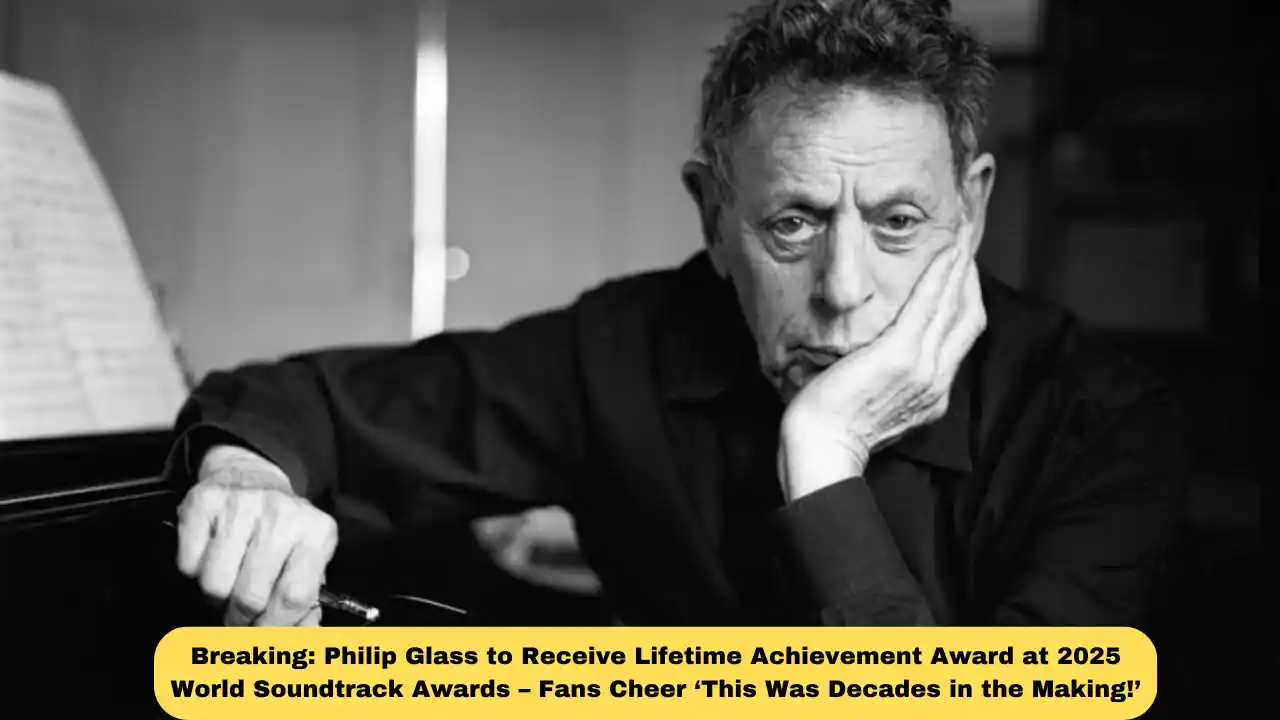The music world is buzzing with excitement as the 2025 World Soundtrack Awards (WSA) just dropped a bombshell: legendary composer Philip Glass will finally receive the prestigious Lifetime Achievement Award! At 88, the minimalist maestro behind iconic film scores and operas is being celebrated for reshaping modern music—and fans are screaming, “It’s long overdue!”
Glass, known for his hypnotic rhythms and genre-defying work in films like Koyaanisqatsi, The Hours, and Notes on a Scandal, has been a quiet force in Hollywood for over 50 years. From collaborating with directors like Godfrey Reggio to inspiring artists like Trent Reznor, his influence is everywhere—yet this is his first major lifetime honor from the film music industry.
“Philip Glass didn’t just write music—he invented emotions,” gushed WSA president Sarah Müller in a press release. “His scores aren’t background noise; they’re characters in the story. This award isn’t just deserved—it’s essential.”
Fans flooded social media within minutes of the announcement. One Twitter user wrote, “Glass’s ‘Metamorphosis’ got me through college. How is this his first lifetime award?!” while another joked, “The judges finally heard what the rest of us have been vibing to since the ’70s!”
The WSA has previously honored giants like Hans Zimmer and John Williams, but Glass’s win feels uniquely personal to his devotees. Known for pushing boundaries with operas like Einstein on the Beach and his haunting Candyman score, Glass turned minimalist music into a mainstream movement, without ever chasing fame.
The award ceremony, set for October 2025 in Ghent, Belgium, promises a tribute performance of Glass’s greatest hits. Rumor has it A-list directors and musicians are lining up to participate—though details are still under wraps.
Whether you’re a die-hard fan or just discovered his work through Watchmen, one thing’s clear: this award isn’t just about Glass’s past. It’s a nod to the future of music—and proof that true artistry never goes out of style. As Glass himself once said, “I don’t write music for awards. I write for the human ear.” Turns out, the world was listening all along.

